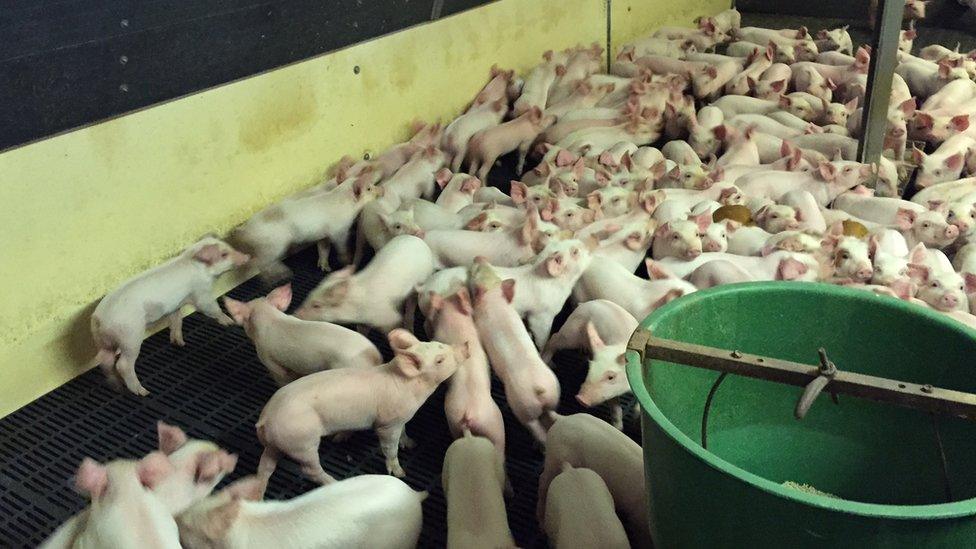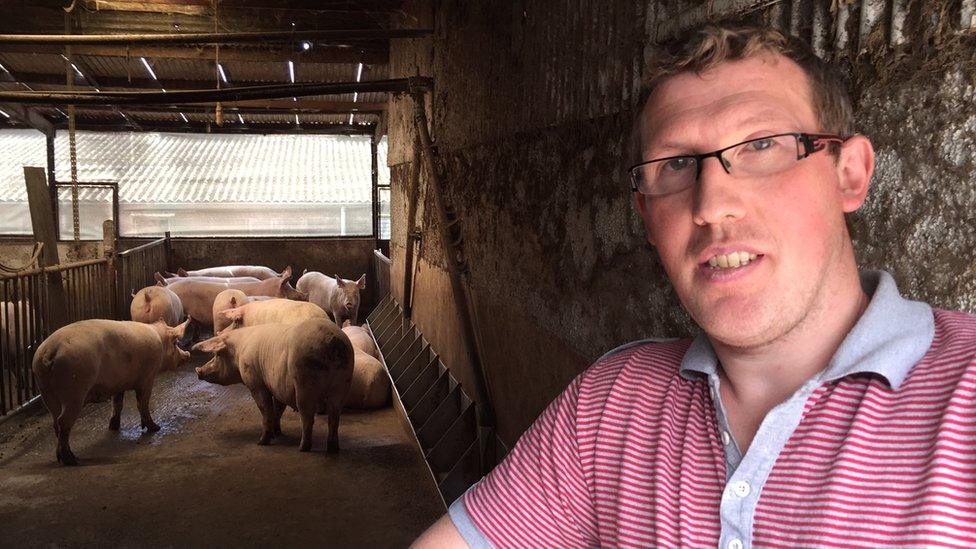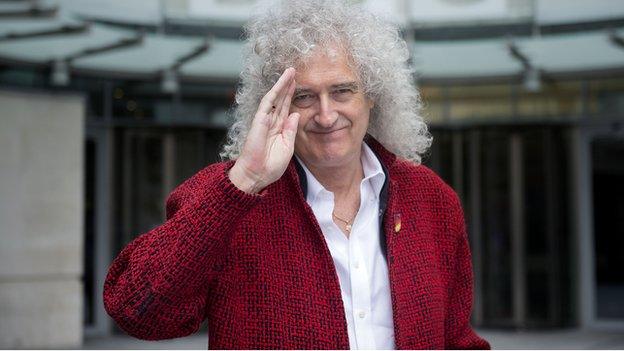Newtownabbey pig farm plan is scaled down
- Published

The original plan was to have up to 30,000 pigs on the farm
A County Antrim farmer who had applied to build what was to have been the UK's biggest pig farm has cut the scale of the project in half.
Newtownabbey farmer Derek Hall wanted to build a facility which could eventually accommodate up to 30,000 pigs.
He has now lodged an amended plan which significantly reduces the scale of development.
It will now house just over 15,000 pigs.
Mr Hall said the proposed development would be "a considerable boost to the Northern Ireland economy, as the initial investment of £6m is expected to further generate £9.8m annually for the local economy".
The original plan proved controversial with thousands of objections.
There were 856 individual letters of objection and 200,000 people signed an online petition.
There were also two letters of support.
A group opposed to the development said: "We have accessed the documents and are currently seeking expert advice, at which time we will submit our thorough reply, on behalf of those opposing this plan, to the planning department."
Queen guitarist Brian May, an animal rights activist, also criticised the development on the grounds of scale, environmental impact and welfare.
Mr Hall said that the scale of the original application had included capacity for expansion.
He said it was planned with the highest standards of animal welfare in mind.
Documents lodged with the planning service said the proposed buildings on the site off Reahill Road have now been scaled down.

Derek Hall said the farm was planned with the highest standards of animal welfare in mind
A report by consultants on behalf of Mr Hall said the original scale of the project had been reviewed "following additional operational requirements and taking into account third party feedback including objections and political representations".
It said the project had been reviewed in light of new planning guidelines covering "sustainable development".
Those guidelines refer to the need to balance "social, economic and environmental" considerations.
- Published15 July 2015
